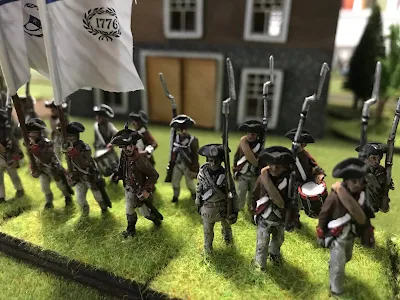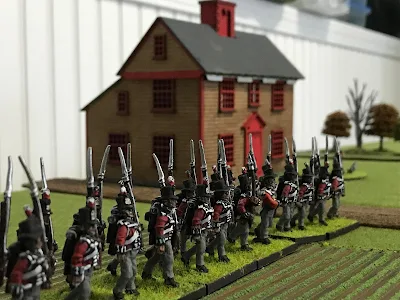The General Assembly of Rhode Island decided to raise a brigade of three regiments to join the Army of Observation during the Siege of Boston in April 1775. these three regiments were organized and marched to Boston in May. The three regiments were named after their commanding officers; Hitchcock, Varnum and Church. Brigadier General Nathanael Greene commanded the brigade. The regiments were adopted into the Continental Army when General George Washington arrived in Cambridge and took command on 3 July 1775.
The regiment was re-organized as the 11th Continental Infantry on 1 January 1776. Following the British evacuation of Boston in March 1776, the regiment, was sent to defend New York City. The British landed in force on Long Island in September 1776 and defeated the Continentals at the Battle of Long Island. Later the Rhode Island regiments played a prominent part in the Battle of Harlem Heights. After the retreat across the Jerseys they took part in the fighting at Second Trenton and Princeton. In the 1777 reorganization the 11th Continental became the 2nd Rhode Island regiment.
Once again there is very little primary documents concerning the 1776 uniforms. It appears they had either brown faced white regimental coats or hunting shirts. Again the regimental colors are from later in the war. They are from GMB and figures are from Fife and Drum.
Dedicated to my old friend Carl Becker, 2nd Rhode Island regiment. To cousin Carl from Cousin Mark.
Dedicated to my old friend Carl Becker, 2nd Rhode Island regiment. To cousin Carl from Cousin Mark.




































